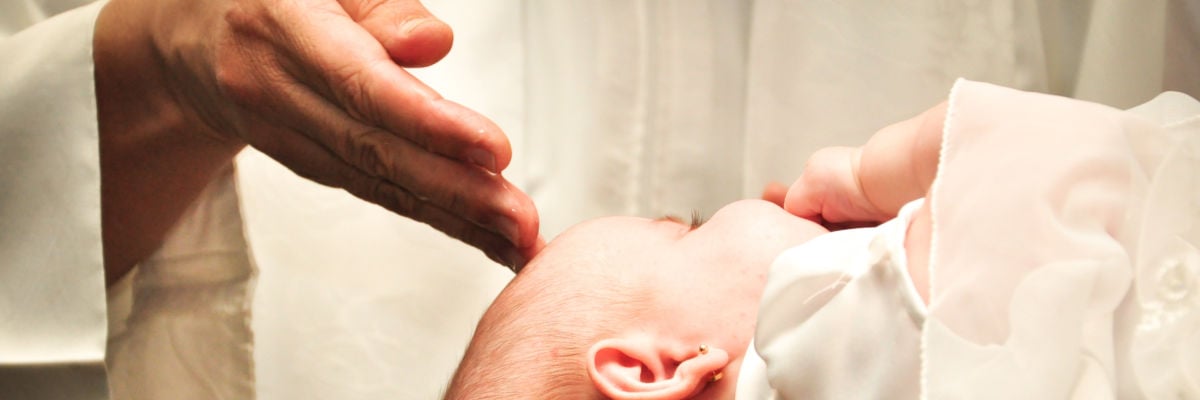
Karlo Broussard explains the distinction between baptizing unconscious adults and babies.
Transcript:
Why can’t adults who are unconscious be baptized due to not being able to give consent, but babies can be baptized?
The implication being without consent, right? Yeah, right, the baby doesn’t consent, yeah, yeah. Yeah, it’s actually a great question. And the answer to the question, Cy, is gonna depend on what Lewis means by quote unquote unconscious. Because there are different ways in which someone can be unconscious.
Option A, or scenario A, an individual is unconscious like he’s knocked out, or he’s sleeping, or something. And then scenario B, the individual can be unconscious like when he’s dying, or they seem dead. But we’re really not absolutely sure.
And so if we’re talking about a scenario where somebody’s unconscious, like knocked out, or they’re sleeping, and it’s not a death situation, or the possibility of a death situation, there you have an adult who has not only the ability to consent, but the very exercise, the ability to exercise the power for self-determination. So it’s not just like a potential that needs more time to actualize, like in the case of an infant. But the adult there in that unconscious state would actually have the capability to exercise self-determination when one comes to consciousness. And so to baptize that individual in that situation or in that scenario would be contrary to the might, if the person doesn’t wanna be baptized, baptizing that individual would be contrary to the consent of the adult, which would be a violation of their self-determining dignity and their power. And so that is why in that scenario, we would not go and secretly baptize them while they’re sleeping or while they’re knocked out, because that would be an act of injustice toward their self-determining power. Now, infants only have, as I mentioned, the ability for self-determination, but they don’t have the capacity to exercise that power of self-determination. And so for their human being, yeah, they got the power for self-determination, to have intellect and will. And given time, they’ll be able to actualize those, actually use those powers that are already present within them as a human being. So therefore, infants and small children under the age of reason are rightly determined in some of their activities by those who have authority over them like parents. And so it’s not a violation of their self-determining power whenever we baptize them. Now, if the scenario is scenario B, like the individual is unconscious because we think he’s dead and like, we’re not sure he might not be dead. We’re not really sure if he’s dead or just on his way to death. Well, then an adult could be baptized there conditionally, even though the adult cannot give their express consent to baptism. And so, a conditional baptism is I baptize you, name of father, assuming, unconditioned that you are alive, if this person seems to be dead, unconditioned that you are alive, I baptize you in the name of father, son and Holy spirit. So if the person is merely unconscious and only seems to be dead, then that person, assuming that the will is properly disposed, that would receive the graces of baptism there. And so we can baptize an adult who is unconscious in one situation, like at the moment of death or near death,
with a conditional baptism, even without an expressed consent to receive baptism.
Hey, thanks for watching. If you like this Catholic answer, be sure to like, subscribe and check out our live streams, Monday through Friday, 3 to 5 p.m. Pacific, or find the episode after on YouTube, your favorite podcast platform or our Catholic Answers app.



